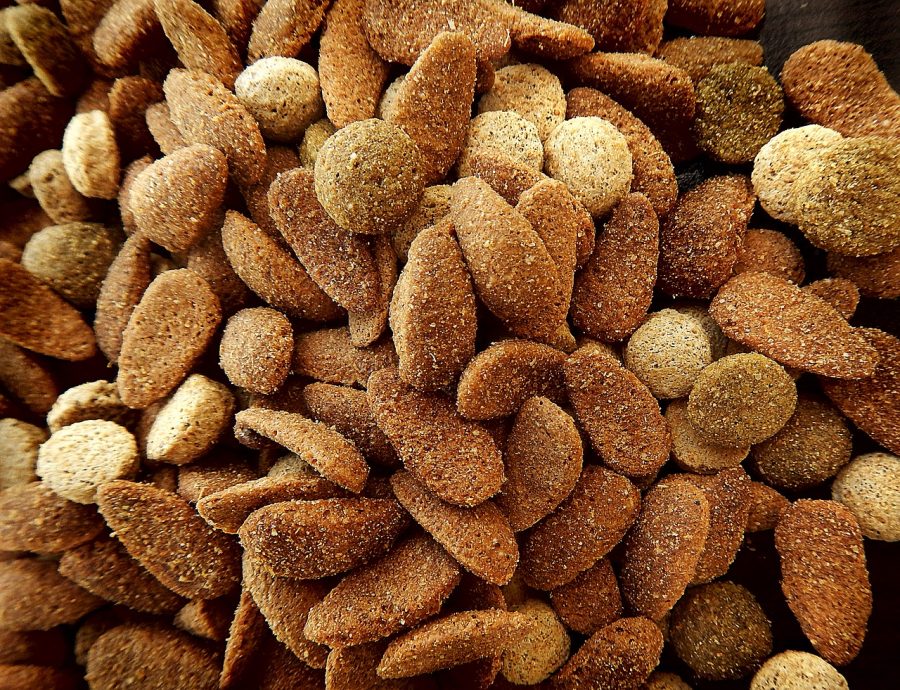We all love to see a good scratching session when the dog practically melts itself into the floor from all the pleasure, especially if it comes with a bonus of floppy ears adding to the cuteness overload. However, when your pooch starts scratching excessively, licking, biting, or chewing a specific area, there might be an underlying issue that’s causing skin irritation.
Whether you’re tackling a flea infestation, or some red patches that need healing, it’s best to stop by your vet and check to see if there’s an infection to look into, or an allergy to soothe. In the meantime, there are several useful things you can do to try and help your fuzzy friend feel better!
Try some apple cider vinegar
This pantry essential isn’t limited to making delicious salads; on the contrary, it can help your dog’s sensitive skin stay healthy or heal those annoying rashes. As soon as spring comes, your pooch will probably spend hours sniffing all sorts of plants and possibly even end up with poison ivy irritation or a yeast infection. This is where your ACV soak which is mixed with the same amount of water can help soothe their skin!
Give yogurt a go
First of all, most dogs love dairy treats, and if your dog has no dairy allergies, then by all means, give them some pure yogurt to help their gut bacteria heal up its sensitive skin. One side-note, though: make sure the chosen brand doesn’t have any additives or sugars, as they are harmful for your pooch. Choose pure, plain yogurt instead!
Tweak their diet

One of the most common causes of skin irritation among dogs is their diet. Whether you’re feeding them one and the same type of meat for too long, or they have a reaction to numerous preservatives and artificial ingredients in your kibble of choice, their skin is often a reflection of poor dietary habits. Try switching to additive-free puppy food which will provide them with all the essential nutrients without leading to an itch-attack.
Add some coconut oil
Dry and dandruff-y skin can be reason enough for your dog to start scratching incessantly and adding healthy oils to their diet can help soothe their skin significantly over time. Coconut oil, the same one you’d use for your cooking for example, is a great choice for dogs, so you can add a spoonful of it into your dog’s dinner every night. Plus, it will make their coats wonderfully smooth and silky!
Herbal teas work for dogs too
Spending hours roaming through meadows is your pooch’s favorite pastime activity, but that might leave their paws incredibly irritated, and parts of their skin affected with various plants they’ve rubbed against. Have a refrigerated tea soak prepared, or poured into a spray bottle for easy application, and you can spray or soak the most affected areas as soon as you arrive home. Excellent choices include rooibos tea, but chamomile or calendula will also work great.
Up your grooming game

If you have a doggo with short, sharp fur, you might feel tempted not to stay all that consistent with their daily brushing, since they don’t shed as much. However, regular grooming plays a major role in helping your dog’s skin stay healthy and irritation-free! That means that even something as simple as daily brushing might be the best medicine for preventing skin troubles and helping your dog’s skin be less itchy. Add to that some all-natural shampoo with soothing ingredients, and you have a perfect match to keep your dog’s fur and skin in great condition.
Lemon out the fleas
Whether your doggo is suffering from those pesky fleas or you’ve noticed too much scratching and biting, you can make your own lemon spray that can help you fend off fleas and keep your pet’s skin refreshed and irritation-free. All you need to do is slice a lemon thinly, soak it in boiled water overnight, and let the mix cool in the refrigerator. It’s best when you can use it within the first few days, and then make a fresh batch!
Of course, nothing beats your vet’s advice when it comes to finding the best solution for your dog’s skin problems, but as a devoted pet parent, you can do your best to help protect their lovely skin and fur. All it takes is some research and a few healthy choices, and you’re all set for an itch-free spring!




